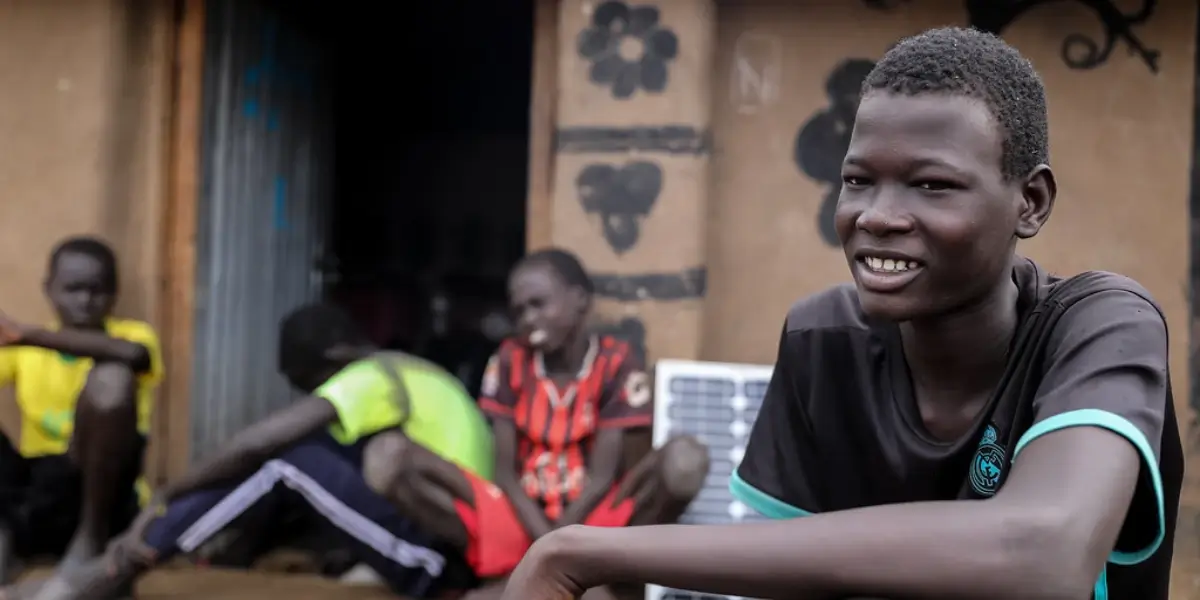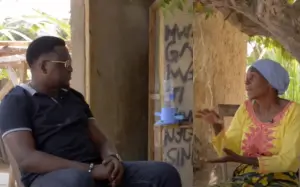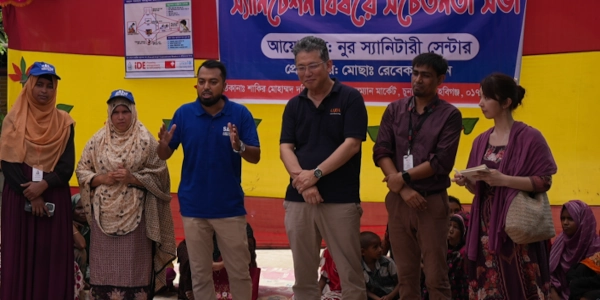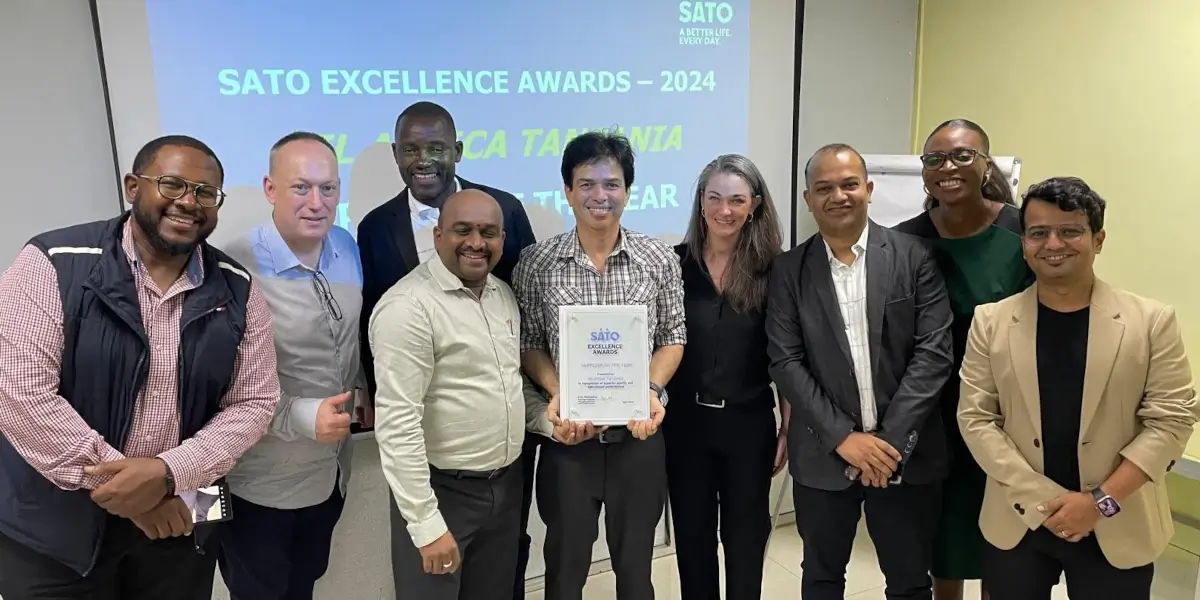
Promoting access to hand hygiene through social marketing

What does a hand dancer and a DJ have to do with it?
Read on to find out…
By Janaína Campoy, Global Leader Marketing and Communications at SATO
As a social business with the aim of improving the lives of rural and peri-urban consumers in Africa and Asia through access to affordable sanitation and hygiene solutions, we are constantly looking for new and creative ways to reach our audience – so we can meet them where they are.
In the last few weeks, I was honoured to be asked to speak at two events: the World Social Marketing Conference, which took place in Johannesburg, in South Africa, and Impact First, in Lisbon, Portugal. Ahead of Hand Hygiene Day, I shared how myself, my Marcom team, and the wider SATO team are working to ensure that more people can access hand washing to make it a habit.
Attended by social marketing and communications professionals from across the world, as well as world-renowned academics and development experts, these events were an opportunity to learn from others and contribute with our experience. SATO, part of LIXIL, has a unique expertise in rural markets and is strongly positioned, as an innovative business within the private sector, not only to influence behaviour change and encourage the adoption of life-changing products and practices, but to develop markets and establish supply chains.
It’s been more than three years since we were told to wash our hands regularly, however, one in four people, or 2.3 billion people, still don’t have access to the products to match their desire for a healthier lifestyle. Creating an affordable product, like our SATO tap, is just the first step. The next step, and arguably where the biggest challenge lies, is to develop self-sustaining hygiene markets which will create consumer demand for these products. This is where the private sector has a huge role to play.
Whilst many feel the pandemic is a thing of the past, we know how hand hygiene and sanitation lie at the core of a series of social issues – from diarrhoea to food waste – and we strive to continue to make hygiene easy and accessible for all. To do that, we have to think creatively – something that we thrive on.
Research has shown that simply talking about diseases and germs will not drive impactful and sustainable behaviour changes. If we want to change entire communities’ relationships with hand hygiene, we must challenge their thinking and make it a part of their every day. Instead of spreading fear about the contracting and spreading of diseases, something referred to as ‘functional fear’, we must strive to make hand washing a central tenet of positive social behaviours, building a sense of personal pride. To do this, stakeholders and social influencers must be collectively mobilised.
We looked to popular local influencers to inspire our target audience, partnering up with a popular Indian hand dancer with over 3.2 million followers to engage an audience which would not traditionally interact with SATO’s own social media content. Similarly, in Tanzania, we partnered up with MC Gara B, a popular DJ and music influencer with over 1.6 million Instagram followers.
In both cases, the influencers used their follower bases to highlight the importance and accessibility of hand washing, promoting our SATO Tap. In the process, we found that mobilising social figures in local cultures was an effective way of engaging a new audience in a creative way. With their uses of local dialects and social media cut-through, we were able to spread the word of good hand hygiene and showcase our products in an exciting and eye-catching way.
However, whilst influencers were useful in reaching a new audience, our experience on the ground has found that many of our customers can be found in areas which are difficult to reach. If we wanted to implement real change, we knew that we needed to use all the tools at our disposal – from social media and digital marketing to traditional offline campaigns and other technologies.
One of these examples was the use of Interactive Voice Response (IVR) technology to reach out to communities in low-connectivity areas in India. By calling prospective customers over their phone signal, we allowed them to interact with voice prompts through their phones’ keypads, sharing details of their current hygiene habits. This enabled us to leverage incredibly valuable data and field research, hurdling the problem of poor internet connectivity and empowering us with the knowledge to respond accordingly. We then connected these consumers with our Customer Experience Center in case they wanted more information or needed to find out where the product was available.
On top of this, we used bold and eye-catching wall paintings, centred on raising awareness on the ease of use and portability of our SATO Tap. The project saw over 45,000 square feet of walls in remote areas in the states of West Bengal and Uttar Pradesh in India – aesthetically brightening communities whilst also communicating the accessibility of good hygiene. As a result, the #DhoDaal (Wash it Away, in Hindi) integrated campaign in India has recently been awarded the ‘Experiential, Design, and Creativity Award’, as the best rural marketing campaign, with the participation of more than 70 agencies and 600 entries.
By concentrating on mobilisation and the effective use of a multi-pronged approach to social marketing campaigns, we have seen incredibly encouraging engagement with our brand, our products and the hand hygiene practices we are passionate about.
In Tanzania alone, our campaign #CHANUKANASATO_TAP (Stay in the Know, in Swahili) with MC Gara B garnered a reach of over 700,000 people, with 68,000 of these users actively engaging with our products. This had tangible and significant results, generating high-value business leads.
On the other hand, through our use of IVR, we saw awareness of hand hygiene increase by nearly 50% after only 6 weeks of promotion efforts, with people subsequently expressing much greater openness to accepting solutions for hand washing that were providing them ease of use. Worldwide, our efforts have achieved more than 18 million online impressions so far, reaching more than 8 million people through our own social media channels.
What have we learned? With the rise in digital penetration in India and Africa, encouraged by the growth of mobile phone ownership and internet access, digital and influencer marketing are very effective tools and are not only to be used with urban consumers. On top of this, social media offers a cost-effective and efficient way to directly connect with consumers in rural and peri-urban areas. Whilst the use of technologies alongside engaging strategies, such as influencer marketing, offer exciting new ways to reach consumers, these efforts cannot be piecemeal.
We set ourselves the goal of improving the lives of 100 million by 2025 and we must be dedicated, systematic, and consistent. From a marcom perspective, we will continue to invest in digital marketing, specifically for rural audiences, to achieve sustainable business growth. By doing this can we drive demand for our products, changing lives in the process.
WANT TO STAY UP TO DATE?
Subscribe to our newsletter to stay on top of the latest news, views, and stories from on the ground.
The easiest way to do this is to sign-up for our LinkedIn newsletter here. We'll then send you a bi-monthly letter from our Leader, Erin McCusker.

Similar articles
While global in scope our stories are local at heart.



 Copyright © LIXIL 2025
Copyright © LIXIL 2025